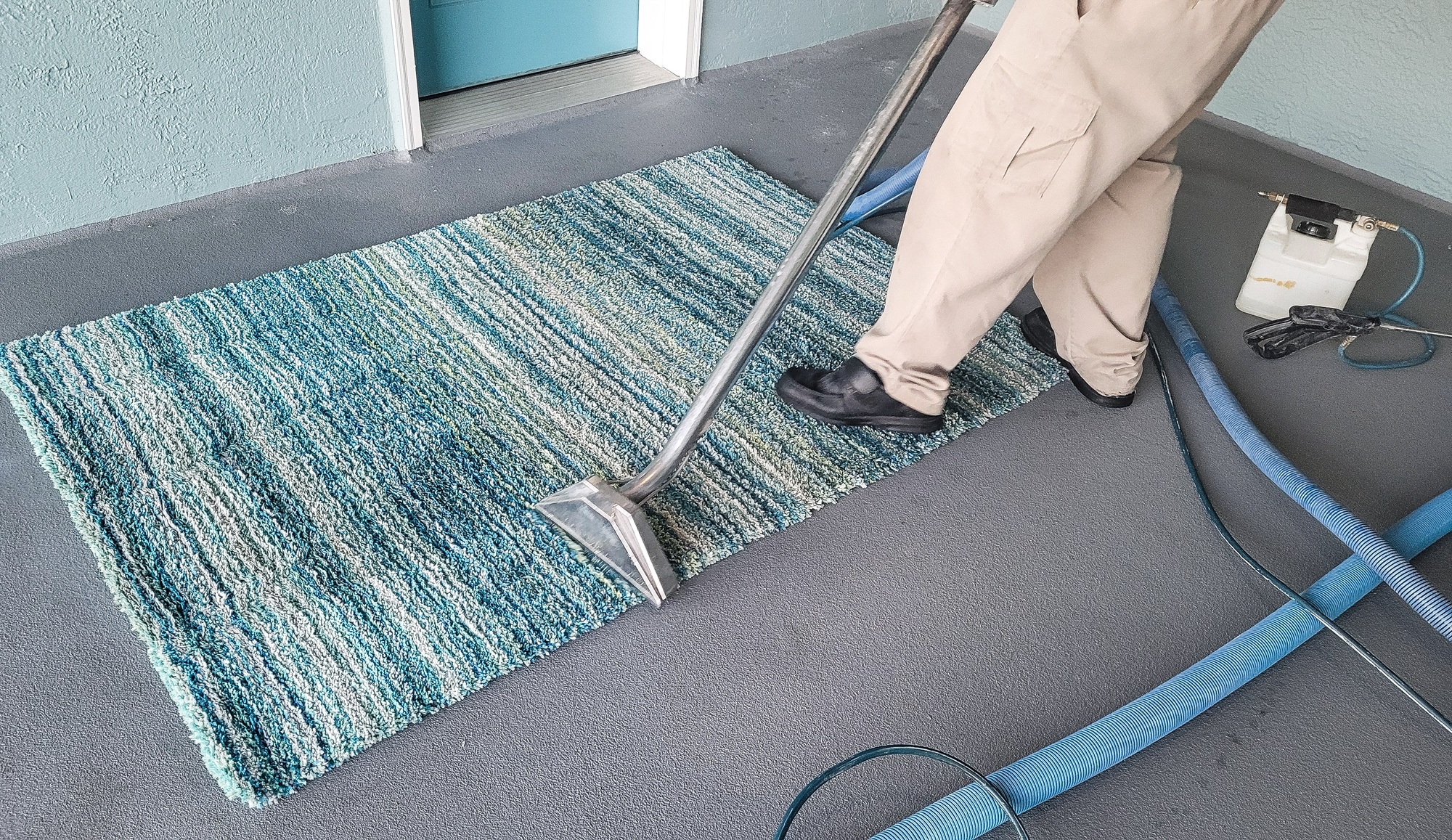Key Takeaways

- Importance of a Business Plan: A well-crafted cleaning business plan serves as a roadmap, outlining your objectives, market understanding, and competitive strategies essential for success.
- Key Components: Your plan should include an executive summary, market analysis, services offered, marketing strategy, funding requirements, financial projections, and an operational plan to ensure a comprehensive approach.
- Target Market Identification: Understanding your target market—residential, commercial, or niche segments—allows for tailored marketing efforts and service delivery that meet clients’ specific needs.
- Competitive Analysis: Assessing local competitors helps identify market strengths and weaknesses, enabling you to differentiate your services and effectively position your cleaning business.
- Effective Marketing Strategies: Utilize online marketing techniques, networking, and partnerships to enhance visibility, attract clients, and foster community relationships for sustained growth.
- Sound Financial Planning: Accurately estimating startup costs, budgeting effectively, and establishing competitive pricing strategies are crucial for maintaining financial stability and profitability in your cleaning business.
Starting a cleaning business can be an exciting venture, but without a solid plan, it can quickly become overwhelming. A well-crafted cleaning business plan not only lays the foundation for your success but also helps you navigate the competitive landscape. It’s your roadmap to understanding your market, defining your services, and setting realistic goals.
Whether you’re aiming to serve residential clients or commercial spaces, having a clear strategy will keep you focused and organized. You’ll learn how to identify your target audience, establish pricing, and outline your marketing efforts. With the right plan in place, you’ll be well on your way to building a thriving cleaning business that meets the needs of your community.
Understanding The Cleaning Business Plan

Creating a detailed cleaning business plan is crucial for small business success. A comprehensive plan provides a structured approach for launching and operating your cleaning business effectively.
Importance of A Business Plan
A business plan serves as a roadmap for your cleaning venture. It helps you define objectives, strategize your offerings, and understand the competitive landscape. By outlining your target market and potential challenges, you position yourself for informed decision-making. Additionally, securing financing often depends on presenting a solid business plan, which demonstrates your commitment and strategic thinking to potential investors.
Key Components of A Cleaning Business Plan
Your cleaning business plan should contain several key components:
- Executive Summary: Summarize your business vision, mission, and objectives.
- Market Analysis: Analyze the local cleaning industry, including trends, target demographics, and competitor profiles.
- Services Offered: Clearly define the range of cleaning services you’ll provide, such as residential, commercial, or specialized cleaning.
- Marketing Strategy: Outline your marketing efforts, including pricing strategies, promotional channels, and branding initiatives.
- Funding Requirements: State your startup costs and any anticipated financing needed for equipment, supplies, and marketing.
- Financial Projections: Include realistic income statements, cash flow forecasts, and break-even analyses over a specified time frame.
- Operational Plan: Describe day-to-day operations, staffing plans, and service delivery methods.
By including these components, your cleaning business plan becomes a comprehensive document that guides your launch and growth while aligning with your long-term vision.
Market Analysis

A thorough market analysis is crucial when you start a cleaning business. It enables you to understand current trends, identify your target market, and evaluate your competition effectively.
Identifying Your Target Market
Identifying your target market involves pinpointing specific demographics that will benefit from your cleaning services. Focus on factors such as:
- Residential Clients: Target homeowners, renters, and families who prioritize cleanliness and hygiene.
- Commercial Clients: Engage businesses, office buildings, and retail locations needing regular cleaning services.
- Niche Markets: Consider specialized services, such as eco-friendly cleaning, post-construction cleanup, or move-in/move-out cleaning for landlords and tenants.
Understanding these segments ensures tailored marketing efforts and aligns your services with client needs, helping your small business thrive.
Competitive Analysis
Conducting a competitive analysis helps you assess the market landscape and position your cleaning business effectively. Pay attention to:
- Local Competitors: Identify other cleaning services in your area. Analyze their offerings, pricing structures, and customer reviews to understand their strengths and weaknesses.
- Service Differentiation: Pinpoint what sets your business apart. Whether it’s unique services, superior customer service, or eco-friendly products, emphasize these traits in your marketing.
- Market Position: Recognize where your competitors excel and where gaps exist that your business can fill. This strategic insight allows you to craft your value proposition, making your small business a compelling choice in the market.
Utilizing these insights from your market analysis will strengthen your business plan and enhance your chances of successfully launching your cleaning business.
Services Offered

Offering a clear outline of your services is essential when you start a cleaning business. A detailed description helps potential clients understand exactly what you provide and how it meets their needs.
Residential Cleaning Services
- Description: Include a variety of residential cleaning services such as one-time deep cleaning, regular scheduled cleanings (weekly, biweekly, monthly), move-in/move-out cleaning, and specialized services like carpet cleaning, window cleaning, and sanitizing/disinfecting.
- Pricing: Define your pricing strategy for each service. Common approaches include hourly rates, package deals, and discounts for long-term contracts. Transparent pricing aids customer decision-making.
- Target Market: Identify your target audience, which may consist of homeowners, renters, and property managers. Analyze their specific needs and demonstrate how your services fulfill them.
Commercial Cleaning Services
- Description: Describe the commercial cleaning services you offer. This may include office cleaning, janitorial services, post-construction cleanup, and specialized offerings like floor care, carpet maintenance, and restroom sanitation.
- Pricing: Set competitive pricing for commercial services, often structured as contracts based on frequency and square footage. Evaluate market rates to ensure your pricing is attractive yet profitable.
- Target Market: Identify potential clients such as businesses, schools, and healthcare facilities. Clarify how your cleaning solutions cater to the unique requirements of each sector, addressing issues like hygiene standards and operational downtime.
Marketing Strategies

A solid marketing strategy is essential for small businesses in the cleaning industry. Effective marketing not only attracts customers but also helps establish your brand in a competitive market.
Online Marketing Techniques
Online marketing techniques significantly enhance your visibility and reach. Focus on search engine optimization (SEO) to improve your online presence, helping potential clients find your services easily. Implement social media marketing by engaging with your audience on platforms like Facebook and Instagram, showcasing client testimonials and cleaning results. Utilize email marketing to nurture relationships with existing customers and promote special offers. Finally, consider pay-per-click (PPC) advertising to target specific demographics actively searching for cleaning services in your area.
Networking and Partnerships
Networking and partnerships play a vital role in building your cleaning business. Join local business networking groups like the Chamber of Commerce or BNI (Business Networking International). These connections facilitate referrals and create opportunities for collaboration. Additionally, partner with real estate agents, property managers, and fellow local businesses for cross-promotional opportunities. Strong relationships within your community can lead to consistent referrals and customer retention, contributing to the overall success of your business plan.
Financial Planning

Financial planning is crucial for the success of your cleaning business. Understanding startup costs and implementing effective budgeting and pricing strategies sets a solid foundation for your operations.
Startup Costs and Budgeting
Starting a cleaning business incurs various costs that you must estimate carefully. Total startup costs can range from $60,000 to $170,000. For smaller operations, costs often fall around $60,000, which covers essential equipment, initial inventory, minimal marketing, and necessary business permits. Larger or specialized cleaning businesses can reach up to $170,000, accounting for premium equipment, expanded service offerings, and strategic marketing initiatives.
A comprehensive budget must include key financial elements such as monthly recurring revenue (MRR) from regular clients and projected annual revenue from one-time services. Tracking these aspects ensures financial stability and helps you make informed decisions throughout the business cycle.
Pricing Strategies
Establishing effective pricing strategies is vital for your business’s profitability. Consider your market position, service offerings, and competitor pricing when setting your rates. For residential cleaning services, prices can vary based on service types, such as deep cleaning or regular maintenance.
For commercial cleaning services, pricing often involves contracts with businesses, schools, or healthcare facilities. Focus on competitive pricing while ensuring you cover operational costs. Create tiered pricing packages that cater to different customer needs and budgets, making your services accessible to a broader audience. Building flexible pricing structures can enhance customer satisfaction and encourage repeat business.
Conclusion

Crafting a detailed business plan is essential for launching your cleaning business successfully. It not only provides clarity on your market and services but also sets the stage for achieving your goals. By focusing on key components like market analysis and financial planning you’ll be better equipped to navigate challenges and seize opportunities.
Remember to tailor your marketing strategies to reach your target audience effectively. With a solid plan in place you’ll demonstrate your commitment and strategic thinking to potential investors. Ultimately a well-structured business plan is your roadmap to growth and sustainability in the competitive cleaning industry.
Frequently Asked Questions

What is the purpose of a business plan for a cleaning business?
A solid business plan serves as a roadmap for your cleaning business, outlining your goals, services, and strategies. It helps you understand your market, define your target audience, and set realistic pricing, ensuring informed decision-making and guiding your growth.
What key components should a cleaning business plan include?
Essential components include an executive summary, market analysis, services offered, marketing strategy, funding needs, financial projections, and an operational plan. These elements provide structure and clarity for launching and running your cleaning business effectively.
Why is market analysis important for a cleaning business?
Conducting a market analysis helps you understand industry trends, identify your target market, and evaluate your competition. This information is crucial for tailoring your services and marketing efforts to meet community needs and stand out from rivals.
What services should a cleaning business offer?
A cleaning business can offer residential and commercial services. Residential services may include deep cleaning and regular scheduled cleanings, while commercial services can range from office cleaning to janitorial services, tailored to meet client needs.
How can a cleaning business improve its marketing strategy?
Utilize online marketing techniques such as SEO, social media, email marketing, and PPC advertising to attract customers. Networking and partnerships with local businesses and real estate agents can also enhance referrals and customer retention.
What are the startup costs for a cleaning business?
Startup costs for a cleaning business can range from $60,000 to $170,000, depending on your scale and specialization. It’s essential to budget for initial expenses and recurring monthly costs to maintain financial stability in the business.
How should a cleaning business price its services?
Develop a pricing strategy based on market analysis, service offerings, and competitor pricing. Consider creating tiered packages to accommodate different customer needs and budgets, enhancing satisfaction and encouraging repeat business.
Image Via Envato



